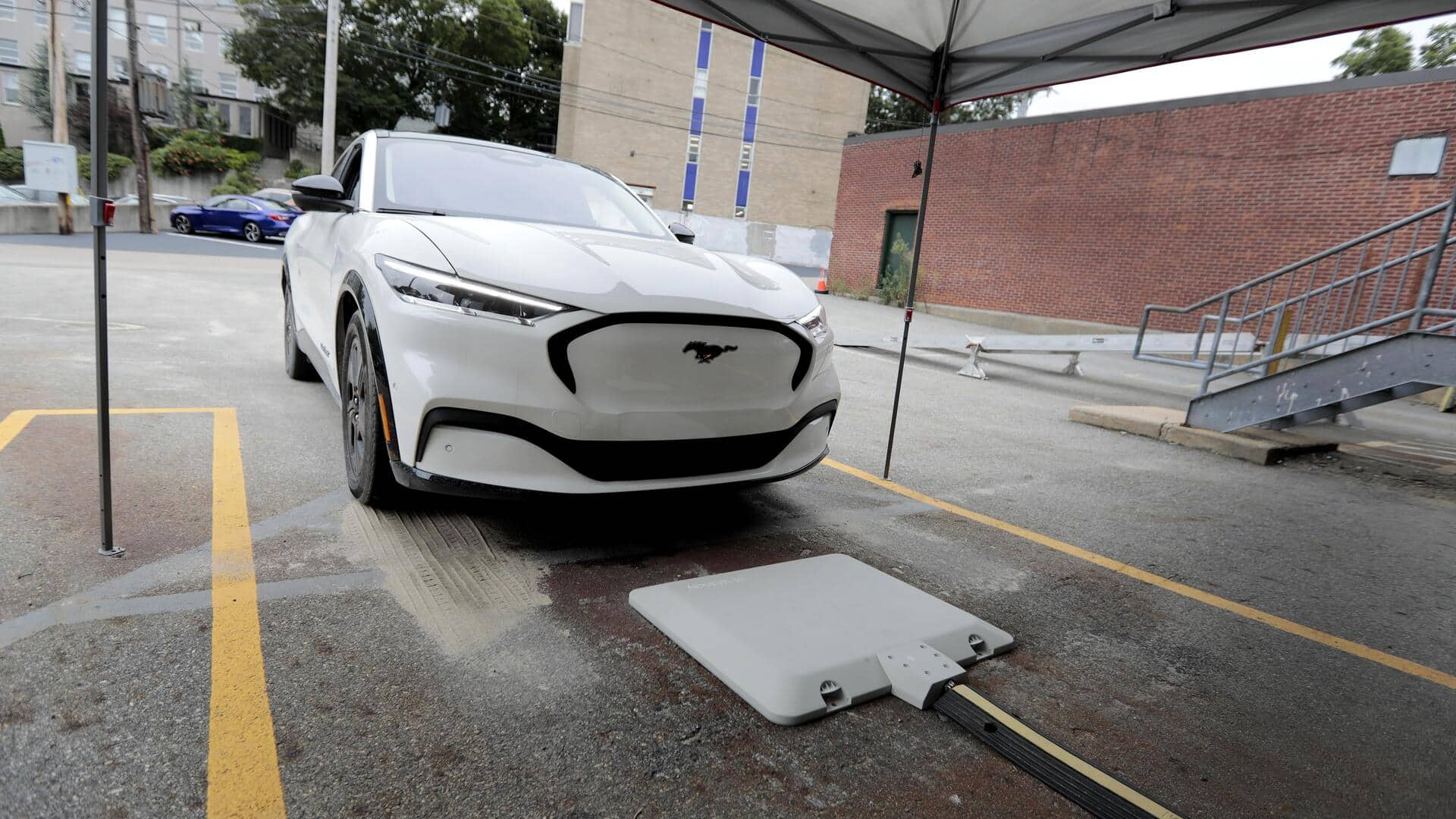
Forget cables! India just developed a wireless charger for EVs
What's the story
The Indian government is pushing for electric vehicle (EV) adoption, with more than 45 lakh registered EVs in the country. As part of this effort, the government is also improving charging infrastructure and technology. The Centre for Development of Advanced Computing (C-DAC) and VNIT Nagpur have created an indigenous wireless charger for electric vehicles, which can charge the vehicle in about three hours.
Technology transfer
The charger is designed for commercial use
The indigenous wireless 1.5kW charger works on a 230V, 50Hz AC single-phase supply. It can top up a 4.8kWh onboard battery pack at 48V with 30A in just three hours, charging nearly 90% of the battery. The technology has been transferred to an Indian company for commercial development, as announced by S Krishnan, Secretary of the Ministry of Electronics and Information Technology (MeitY).
Twitter Post
Take a look at the official announcement
FAST INDIGENOUS WIRELESS CHARGER SOON FOR ELECTRIC VEHICLES
— PIB India (@PIB_India) May 8, 2025
The central government is continuously taking steps to boost electric mobility by increasing electric vehicles in the country. As a result, more than 45 lakh electric vehicles have been registered in India. Now, the… pic.twitter.com/9ZccUkEL6U
Safety measures
Wireless EV charger boasts advanced safety features
The wireless EV charger also comes with advanced safety features like short-circuit and open-circuit protection. It also uses silicon carbide-based Metal-Oxide-Semiconductor Field-Effect Transistors (MOSFETs) operating at 88kHz. These safety measures will ensure that the charger performs reliably while in use, adding to the efficiency of India's burgeoning EV and charging infrastructure.
Policy support
Government initiatives to boost EV adoption
The Electronics Ministry has signed agreements with industries for the commercialization of technologies developed under the National Mission on Power Electronics Technology (NaMPET). This is part of a broader government effort to promote EVs and tackle challenges in their adoption through schemes including PM E-DRIVE and Payment Security Mechanism (PSM). The Ministry of Finance has also reduced GST on EVs from 12% to 5%, further incentivizing their use across the country.